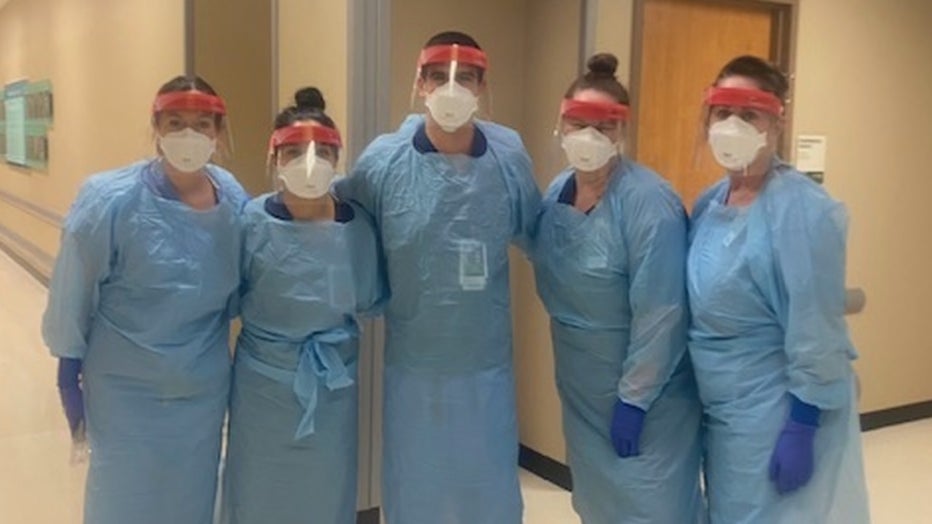Nurse treating COVID-19 patients at Parkland Hospital describes what the last 2 months have been like

Nurse treating COVID-19 patients at Parkland Hospital describes what the last 2 months have been like
A nurse from Parkland Hospital is providing some insight on the ups and downs involved with treating virus patients.
DALLAS - Many frontline healthcare workers continue to live in hotels to reduce the chance of spreading the coronavirus. It's one of the many sacrifices they've been making.
A nurse from Parkland Hospital is providing some insight on the ups and downs involved with treating virus patients.
The COVID unit is on the third floor at Parkland hospital. It holds about 300 employees, with 15-20 nurses per shift.
The medical workers are cut off from the rest of the hospital. And because of the risk of infection, some haven’t seen their loved ones in months. A red door leads the way to Parkland’s tactical care unit.
“Yeah, this big barricade that’s blocking you off from the rest of the hospital,” ICU nurse Amy Grudier said.
It’s specifically designed for COVID-19 patients and the medical workers who are carrying a lot of weight on their shoulders.

“We probably try not to think of how heavy it is sometimes because we know we have a job to do,” Grudier said.
Grudier has been fighting the pandemic there for two months and said she’s lost track of how many patients she’s treated in that time.
RELATED: Coronavirus coverage
“We started what we thought was going to be a sprint, and I think we’re now realizing this is more of a marathon situation,” she said.
The third-floor unit is typically where surgeries take place, but it’s been converted to care for roughly 100 COVID patients at a time.
“We’re seeing, you know, the most intense of version of how corona is affecting people’s bodies,” Grudier said.
Grudier has been living in a hotel during the two-month period because she doesn’t want to risk infecting her roommate. She’s not the only one making sacrifices.
“I work with people who, you know, haven’t seen their kids in months,” she said.
Working in the COVID unit brings highs and lows.
“I think the hardest losses are the losses where you’ve been able to interact with that patient and had conversations with them,” Grudier said.
Many of the patients she works with are on ventilators. So while there’s little communication, she does keep up with their families over live video streaming.
“It gives you that personal connection of like, wow, this is someone’s, you know, husband, this is someone’s father, sister,” she added.
There’s been all sorts of frontline worker celebrations honoring hospital heroes.
“The heroic act is when you’re willing to step into someone else’s broken situation and do whatever you can to help them get to a better place,” Grudier said.
Grudier understands the magnitude of her job, but feels that even during a pandemic, anyone has the ability to be a hero.
“Anyone can do that,” she said. “Whether you’re a healthcare professional, or I mean, whatever your job is, whatever way that the coronavirus pandemic has affected your life, we all are hurting and can choose to step into other people’s pain.”

